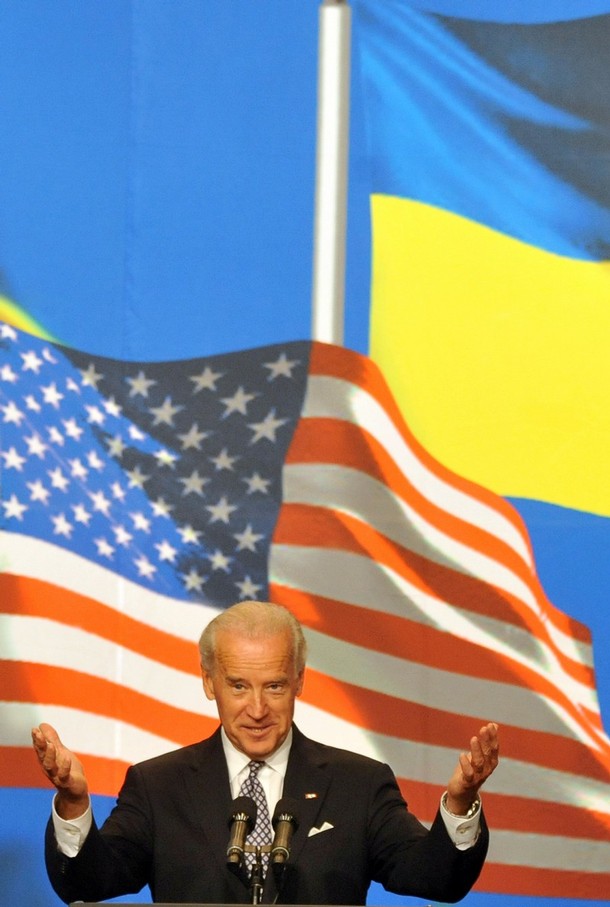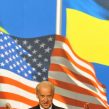
Vice-President Biden’s Mission to Kyiv
Publication: Eurasia Daily Monitor Volume: 6 Issue: 143
By:

The visit by U.S. Vice-President Joe Biden to Kyiv on July 21-22 was a strenuous test of his diplomatic skills. He needed to avoid the political land mines separating Ukrainian President Viktor Yushchenko and his nemesis, Prime Minister Yulia Tymoshenko as well as present a neutral face to Viktor Yanukovych, the head of the Party of Regions, presently the most popular politician in Ukraine. In addition, he also met with Arseniy Yatseniuk, the young former speaker of the parliament who has announced his bid to become president in January 2010.
The meeting with Yatseniuk was the last on Biden’s agenda, leaving enough time for a more substantive review of issues and a chance for the American Vice-President to formulate an opinion about the young, upcoming politician. These meetings however, were only one facet of his delicate task – Moscow was analyzing every word Biden uttered in Kyiv to see how they corresponded to what U.S. President Obama told his Russian counterpart Dmitry Medvedev and Prime Minister Vladimir Putin during his recent visit to Russia.
Biden’s trip was widely proclaimed as a mission of reassurance to Ukraine; that the U.S. would stand by its past commitments to that vital country while going forward with "resetting" U.S.-Russian relations. The problem is that many in Ukraine do not believe or care much for U.S. protection and would prefer to bask in the Kremlin’s care.
Biden’s message lost some of its credibility when on July 21, Jaap de Hoop Scheffer, the Secretary-General of NATO, stated that neither Ukraine nor Georgia are ready to join NATO and that this is unlikely to change soon, citing the complicated political situation in the two states (www.mosnews.com, July 21).
William Taylor, the U.S. ambassador to Ukraine was frank when he stated during a televised interview: "We will not select favorites (in the upcoming elections) and will not attempt to influence the outcome – this is a choice for Ukrainians and they have shown that they are able to do so…I am convinced that the American government will cooperate with the winner" (RFE/RL, July 18).
Prior to Biden’s visit, the Ukrainian ambassador to the U.S. Oleh Samshur told Ukrayinska Pravda that Yushchenko would ask Biden for the U.S. to provide legally binding assurances that Washington would protect Ukrainian independence. Such assurances are unlikely to be offered anytime in the near future, if ever. Samshur most likely had in mind legalizing the 1994 Budapest agreement between Moscow, London and Washington to guarantee Ukrainian independence (www.pravda.com.ua, July 18).
The text of the agreement stated in part:
"The United States of America, the Russian Federation, and the United Kingdom of Great Britain and Northern Ireland, reaffirm their commitment to Ukraine, in accordance with the principles of the CSCE Final Act, to respect the Independence and Sovereignty and the existing borders of Ukraine."
The Russian media reported that Biden’s visit to Kyiv was to bid farewell to Yushchenko in anticipation that he will lose the January presidential elections and to evaluate his potential successor (Kommersant, July 27).
Ukrainian media reports about the Biden-Yushchenko meeting stressed that the U.S. Vice-President rejected all Russian claims to have a "sphere of influence" on any country and that each country has the right to determine the type of relations it deems necessary.
Biden, in no uncertain terms, also told the Ukrainian leadership that the U.S. was exasperated by the lack of transparency in the country. He lectured the speaker of the Ukrainian parliament, Volodymyr Lytvyn, on the need to improve, among other things, the court system and insure greater transparency in the law making process. The Vice-President called on the Ukrainian parliament to begin an honest dialogue which was needed in order "in order to avoid any interference by foreign middlemen" (www.pravda.com.ua, July 22).
And while Lytvyn agreed with his high level American visitor (their meeting lasted twice its planned length) many observers in Ukraine have little, if any confidence in Lytvyn’s ability – or sincerity – to implement changes. Lytvyn is still under suspicion in many Ukrainian circles as a key co-conspirator in the murder of Georgiy Gongadze, an internet journalist critical of official corruption in Ukraine.
Mykola Pysarchuk, a political commentator for the UNIAN press agency, predicted that there will be no rapid breakthrough in U.S.-Russian relations and that should Obama visit Kyiv after the January 2010 presidential elections for talks with the newly elected president of Ukraine, he will discover that any hopes for an improvement in U.S.-Russian relations, at the expense of Ukraine would prove to be illusionary (UNIAN, July 20).




